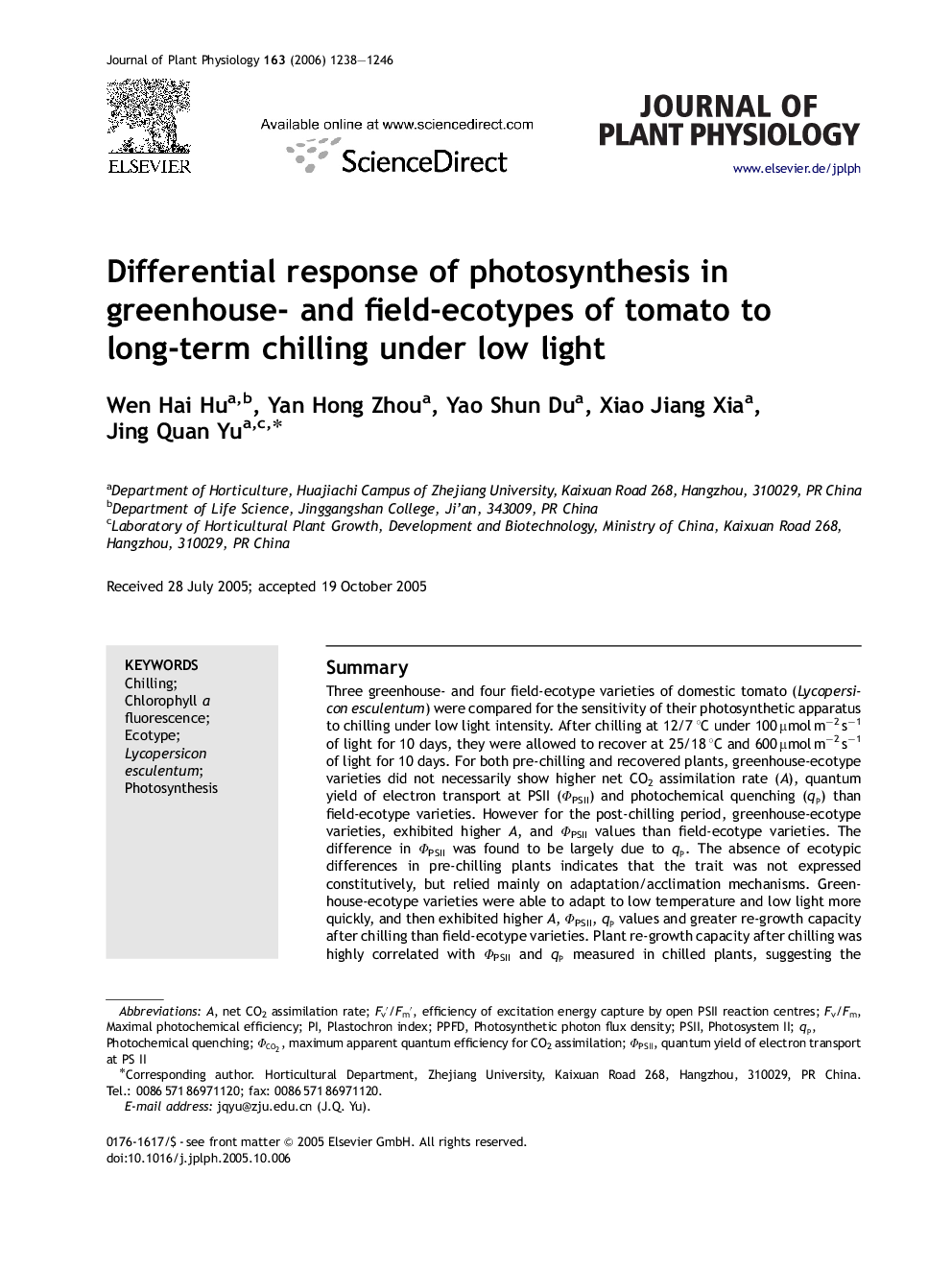| کد مقاله | کد نشریه | سال انتشار | مقاله انگلیسی | نسخه تمام متن |
|---|---|---|---|---|
| 2057361 | 1075879 | 2006 | 9 صفحه PDF | دانلود رایگان |

SummaryThree greenhouse- and four field-ecotype varieties of domestic tomato (Lycopersicon esculentum) were compared for the sensitivity of their photosynthetic apparatus to chilling under low light intensity. After chilling at 12/7 °C under 100 μmol m−2 s−1 of light for 10 days, they were allowed to recover at 25/18 °C and 600 μmol m−2 s−1 of light for 10 days. For both pre-chilling and recovered plants, greenhouse-ecotype varieties did not necessarily show higher net CO2 assimilation rate (A), quantum yield of electron transport at PSII (ΦPSII) and photochemical quenching (qPqP) than field-ecotype varieties. However for the post-chilling period, greenhouse-ecotype varieties, exhibited higher A, and ΦPSII values than field-ecotype varieties. The difference in ΦPSII was found to be largely due to qPqP. The absence of ecotypic differences in pre-chilling plants indicates that the trait was not expressed constitutively, but relied mainly on adaptation/acclimation mechanisms. Greenhouse-ecotype varieties were able to adapt to low temperature and low light more quickly, and then exhibited higher A, ΦPSII, qPqP values and greater re-growth capacity after chilling than field-ecotype varieties. Plant re-growth capacity after chilling was highly correlated with ΦPSII and qPqP measured in chilled plants, suggesting the usefulness of ΦPSII and qPqP measured at low temperature after defined chilling stresses as screening indexes for chilling tolerance in breeding programs.
Journal: Journal of Plant Physiology - Volume 163, Issue 12, 7 December 2006, Pages 1238–1246